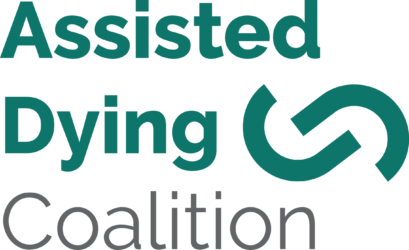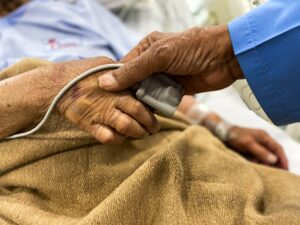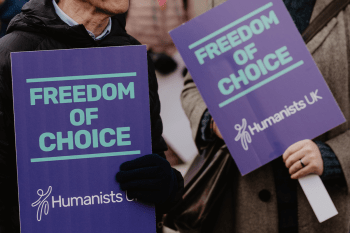I must start with a declaration of interest. I have advanced prostate cancer. I am currently in remission. I have operated on hundreds of men who were becoming paralysed from prostatic metastases in the spine, so I am what you might call an informed consumer.
Surgery only postpones paralysis in most cases – many of my patients would eventually have died bed bound, paralysed and doubly incontinent. This quite probably – though not inevitably – will be my fate. Metastatic disease in the bones can be very painful, but this possibility troubles me less than the loss of autonomy and dignity that comes with irreversible paralysis leading to death. Pain can be treated – although it should be remembered that the treatment can have very distressing side effects. I accept that I might not opt for Assisted Dying (AD) in the event, were it to be available, but don’t we all want, if possible, to die peacefully, ideally in our own bed, surrounded by our family, without prolonged indignity and suffering beforehand? Legalizing AD is simply about fulfilling this fundamental human wish. It is also, after all, the aim of all palliative care. Why are a small number of people so implacably opposed to AD, when opinion polls in the UK show an overwhelming majority in favour of it?
The opponents to AD produce little, if any, convincing evidence to justify their opposition. We might reply, quoting Bertrand Russell, that if you produce no evidence in support of your argument, we don’t need to produce any evidence to disagree with you. But it is important to understand that there is now evidence about how AD works in practice, as it has been legalized in so many countries. As John Maynard Keynes is said to have asked: “When the facts change, I change my mind. What do you do?”
I am not going to spend time going over the arguments in favour of AD in any detail as I want to concentrate on the arguments against it, but would make two points:
Firstly: There is what the lawyers call an a priori case for AD – suicide is not against the law, so you must produce good reasons as to why it should be illegal to help somebody do something that is not illegal. It is worth pointing out that there is all the difference between assisting suicide for somebody who has made a considered request for it, and actively encouraging it. The 1961 Suicide Act, absurdly, fails to recognize this difference. The Serious Crime Act of 2015 has no problem with recognizing coercive behaviour in other areas of life. Encouraging suicide could easily be legislated against.
Secondly: There is clear evidence that there is an unmet demand for AD in this country despite good palliative care, as is shown by the fact that many people (who can afford it) go to Switzerland for an assisted death. The book Last Rights, produced by Dignity in Dying, has many stories of people suffering dreadful deaths despite good palliative care. Besides, as I argued earlier, the loss of autonomy and dignity that dying can so often involve is the commonest reason for opting for AD in surveys of people who have asked for it, rather than just “physical” suffering.
The UK Association of Palliative Medicine is implacably opposed to AD, but it is curious that in the increasing number of jurisdictions where AD is legal, most palliative care doctors have no problem with it. In none of these jurisdictions has there been any move to reverse the legislation – which suggests it is working well.
In most jurisdictions allowing AD, the people opting for it do not fall into “vulnerable” categories ( ie. poor, disabled, socially isolated or depressed, and without good palliative care available to them). The uptake of AD varies from country to country – but the numbers are small. For instance, in the Netherlands, about 4% of deaths are assisted, in the state of Oregon in the USA about 0.3%. Different jurisdictions have different criteria for permitting AD, different ways of administering it and different safeguards. The essential feature of the safeguards is to identify coercion, depression and lack of palliative care, and to establish that the patient has mental capacity. All jurisdictions impose a delay and time for patients to change their minds, before any request for AD is granted.
Given the a priori argument, and the evidence that a small, but significant number of people in the UK would opt for AD if it was legalized, why should their wishes be refused?
The arguments against AD are principally that people other than those who might currently request it will suffer if it is permitted. These seemingly pragmatic arguments are used as a smokescreen for a deeper objection to AD as a matter of principle, rather than of practice. The aim is to sow doubt, which is something you do when you have little evidence, or the evidence is against you.
There are several “practical” arguments against AD:
- It will be abused, with people being coerced or pressurised into killing themselves.
- It will be a “slippery slope”, making it too easy for “vulnerable” people to kill themselves. It is important, in other words, that suicide remains a difficult and distressing business for all concerned. (It is worth noting the recent ONS Survey that showed that people with non-survivable cancers have a suicide rate 2.6 times higher than matched controls). AD will become a cheap substitute for proper palliative care. Vulnerable people will be made to feel a burden and will kill themselves. There is a glib sound bite for this: “Right to die will become duty to die”.
- It will be impossible to design safeguards that will prevent these problems with any certainty.
- I will not waste time on certain opponents who are on record as invoking the shades of Dr Mengele and Harold Shipman, or who claim that emotions are more important than rationality. AD is about patient autonomy, not about licensing doctors to kill patients, nor is it about paternalistic doctors knowing better than their patients as to what is in their best interests.
In England we are entitled to refuse lifesaving treatment, provided we have mental capacity. If there is a risk of coercion with AD, why is there no evidence that vulnerable people are being coerced into refusing treatment at the moment – to clear a hospital bed, for instance, or because relatives are eyeing up the family silver? Nor is there any evidence that significant abuse and coercion are taking place in jurisdictions where AD is permitted. The safeguards prevent it. Likewise, it is legal in the UK to administer “terminal sedation” if a dying patient is suffering intractably, even though the sedation will hasten death, on the grounds that the intent is to treat suffering and not to kill the patient. I am told that in modern palliative care if this is used, it is only after discussion with the patient and family, who make the final decision. In which case, you might ask, why cannot the patient ask for a quick end ( i.e. AD), rather than a slow one?
There is no evidence that “right to die will become duty to die”. AD is not resulting in queues of people asking for it because they feel they have become a burden. What is clear is that the current legal situation in the UK means that no right to die is a duty to suffer.
There is no evidence that AD has resulted in declining levels of palliative care – AD should be seen as complementary to palliative care, and not in opposition to it.
All medicine is about making decisions in the face of uncertainty, using evidence to balance risks against benefits. We can never be entirely certain. None of the arguments against AD are being borne out in practice. The “slippery slope” is a deeply discriminatory argument that prioritises a small, hypothetical group of patients against a much greater number of real people whose suffering in their final illness could be lessened if their freely made request for AD was granted. Medicine is about preventing suffering as well as about prolonging life.
Medicine is all about evidence – surely the rational solution to the AD problem is to review the evidence and then legislate to permit it, subject to safeguards. As with any medical treatment, the evidence should be carefully collected and analysed, and the legislation changed accordingly if necessary.
The opponents to AH should be challenged to answer two key questions:
- Are there any safeguards which in your opinion would make AD acceptable?
- Given the strength of feelings on both sides of the argument, would you support an Official Inquiry ( for instance by the House of Commons Health and Social Welfare Committee ) into the matter?
I have little doubt that Assisted Dying will eventually be permitted in England – the evidence in its favour is so strong. I just hope that it is in time for me.
This script is a condensed version of Dr Henry Marsh’s speech at the Doran Lecture, 24th April 2022.
 President Emmanuel Macron announced he will launch a citizens’ assembly on assisted dying. The French President showed his support for assisted dying while campaigning in the presidential election. Further details about the ‘convention citoyenne’ will be announced on Tuesday 13th September. Macron called it a move towards “more humanity.”
President Emmanuel Macron announced he will launch a citizens’ assembly on assisted dying. The French President showed his support for assisted dying while campaigning in the presidential election. Further details about the ‘convention citoyenne’ will be announced on Tuesday 13th September. Macron called it a move towards “more humanity.”

 Baroness Meacher’s Assisted Dying Bill
Baroness Meacher’s Assisted Dying Bill




 Germany’s Constitutional Court has ruled that a law forbidding professional assistance to die is unconstitutional, in a move that is being seen as a major victory for assisted dying campaigners.
Germany’s Constitutional Court has ruled that a law forbidding professional assistance to die is unconstitutional, in a move that is being seen as a major victory for assisted dying campaigners.